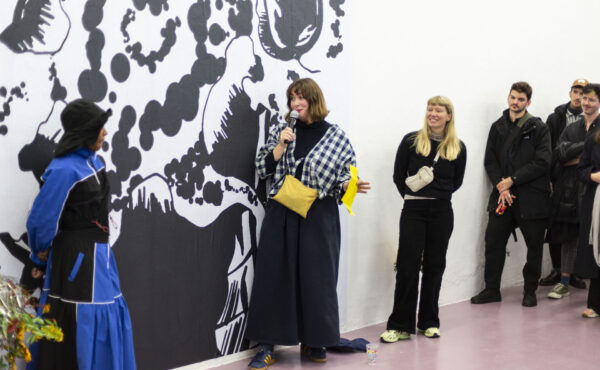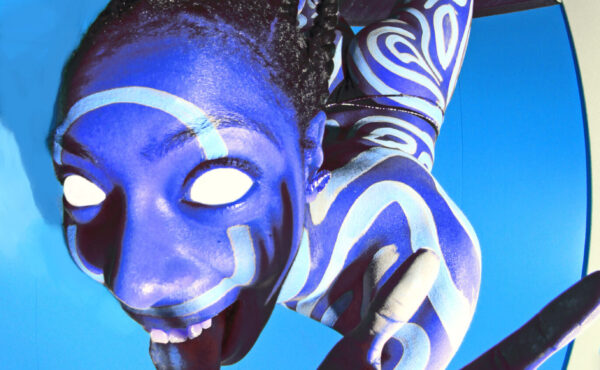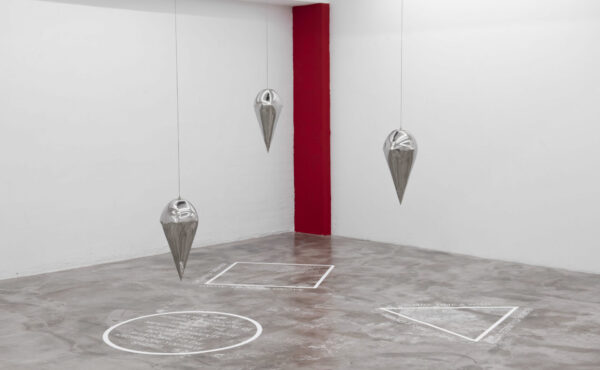
Best of both Worlds Ahmet Ögüt on The Silent University

The Silent University is an autonomous knowledge exchange platform, initiated by the artist Ahmet Ögüt. The University recruits asylum seekers, refugees and immigrants with a professional background in their countries of origin, who, due to systematical social exclusion and processes of discrimination, are unable to put their knowledge to professional use in the countries in which they currently live. Through the Silent University, careers that have been muted are included and reassigned. Taking the form of an academic program, classes, lectures, libraries, seminars, a website and student-cards are created.
Being immediatly sympathetic to the Silent University of Ahmet Ögüt, I am also a bit puzzled by the sudden vigor of artists stepping into the breach for migrants, illegal workers and, in this case, asylum seekers, as well as art institutions seeming as eager to host these projects. And coinciding with that is the search for alternative models of education, which again seems to radiate from artists specifically. O?g?u?t’s Silent University embodies both. Starting in 2012 in London in collaboration with the Delfina Foundation and Tate, and in 2013 carried on by the Showroom, it later on became active at Stockholm in collaboration with Tensta Konsthall, and recently nestled at Montreuil, a suburb of Paris in collaboration with Le 116 Centre d’art contemporain.
For what kind of hosting insititutions is The Silent University looking after?
Ideally we are aiming to bring together three types of institutions to collaborate on the project: cultural institutions, academies and other pedagogic organizations, and community organizations. It turns out that many an art institution already often partner with such community based organizations so they seem to come along as the most practical. However, they should be aware of the requirement of long-term engagement to get the University started. It took us a full year to get the project off the ground in London. The Silent University goes beyond given forms and does not fit in any given format. Any hosting institution is supposed to assign itself for at least two years of commitment with the project. Now the University is already more than two years on its way, I myself will become less active personally as the direct initiator everywhere as I cannot coordinate the project for each venue myself and it shouldn’t only depend on mainly my commitment. So now each hosting institution has to employ a coordinator of its own, who will need to be as committed as I have been over the past years.
How do you find good candidates for the University’s curriculum of lecturers?
Finding the candidates is simply a matter of approaching the many institutions that deal with migrants and asylum seekers. Again this depends on strong personal commitments of the hosting institution. The University intends to open up as a platform in order to reactivate academic skills of the asylum seekers. You have to understand that what is most important in this process, is that we are basically defining a community that only exists in shadows.
Are you already looking for a hosting institution in the Netherlands, where you are based? Casco in Utrecht springs to mind since it tries to empower local communities and, through Actie Schone Kunsten, raised attention in the art world to the precarious position of illegal domestic workers.
Casco could be an option, but I’m especially thrilled by the Wij Xijn Hier (We Are Here) group in Amsterdam that I was put in touch with by Jonas Staal. This is a self-organised body of some 200 asylum seekers who make themselves visible outside the shadowy structures of bureaucracy, which is basically also what the Silent University aims at. We share a main goal, which is to change the practices, the policies and the politics of migrant issues and especially those surrounding the refugees into Europe, because by denying a status and a working permit, such refugees are literally silenced. The Silent University is a tool to nevertheless make use of their academic skills to our and their own advantage, and in the process it visualizes a group that has been silenced through bureaucratic procedures. This is an organization of struggle and negotiation. But sometimes it helps progress the slippery process of getting citizenship. There is at least one example of an individual in London who profited from his position in the Silent University by him obtaining a residency permit.
THE FULL INTERVIEW IS PUBLISHED IN DUTCH IN METROPOLIS M No 2-2014
Jelle Bouwhuis
PhD researcher Modern and Contemporary Art Museums, Globalization and Diversity, VU Amsterdam


